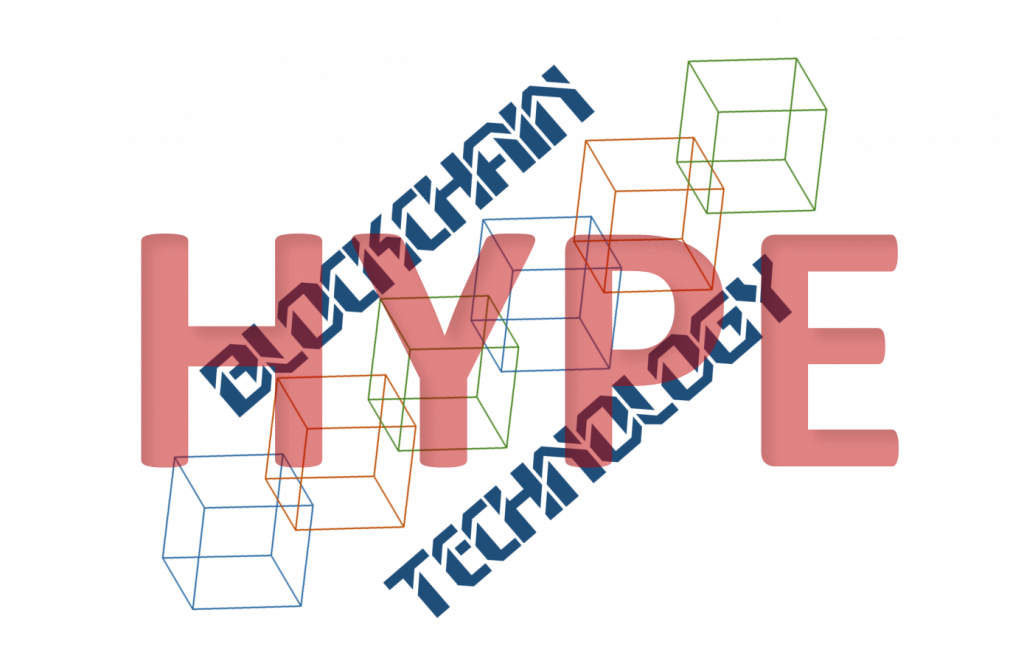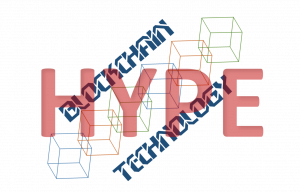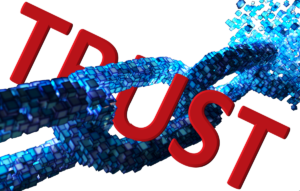New technologies are always subject to hype and blockchain (aka distributed ledger) technology is no different. Matthew Lieberman (@MBLieberman), an Advisory Marketing Leader at PwC, writes, “I’m going out on a limb and making a prediction: You’ve already heard a lot (maybe too much) about blockchain. But even if you understand all the benefits this technology offers, you, like many C-suite executives I know, may be skeptical about blockchain. To be honest, I don’t blame you.”[1] Simon London (@simonlon) adds, “Blockchain has a lot of potential applications, in areas as diverse as supply-chain management, trade finance, insurance, and even cybersecurity. But there are a lot of misconceptions and often good reasons why a blockchain may not be the right tool for the job.”[2]
The many uses for blockchain technology
Matt Higginson, a partner at McKinsey & Company, told London, the simplest definition of blockchain is that it is a secure, shared database. He explains:
“When I think about that definition as a database, I think of it in three parts. The first is that this is a cryptographically secure database or distributed ledger. That means that when data is read or written from the database, you need the correct cryptographic keys to do that: a public key, which is basically the address and the database where information is stored, and a private key, which is your personal key, truly the security which prevents other people from updating the information unless they have that correct key. It’s secure data. Second, it’s a digital log or digital database of transactions. Digital’s important because, in many industries, we’re still going through the process of digitization, and that’s an important first step before you can even think about using blockchain. Finally, this is a database that’s shared across either a public or a private network.”
Mark van Rijmenam (@VanRijmenam) and Philippa Ryan, blockchain proponents and authors of a new book entitled Blockchain: Transforming Your Business and Our World, write in their introduction, “Blockchain technology will enable the decentralization of the web and the disintermediation of many, if not all, of the services that are offered online.”[3] Lieberman adds, “Gartner recently forecast that this technology will add more than $3.1 trillion in annual business value by 2030, and that’s a prediction that warrants taking a serious look at blockchain.” According to Higginson, the value of blockchain technology is derived from four innovations: cryptographic keys, decentralization, chaining blocks of information together, and process integrity. He explains, “The database can only be updated when two things happen. One, the correct credentials are being applied, the private and public key together. But most importantly, those credentials are being verified by a majority of participants in the network. You can only update the database when the majority of independent computers check and verify those credentials that allow you to write to the database. You’re securing this against the idea of single point of failure and somebody working nefariously to try and corrupt the database. You have this democratization of the process of dating the database.”
Given all the steps that must be taken to make blockchain work, it’s clear blockchain is not an easy technology to implement. In order for blockchain to work, everybody in the transaction chain must agree to a standardized protocol. In today’s crazy world, getting people to agree on anything is challenging. Despite the challenges, however, most experts believe pursuing blockchain technology will be worth the effort.
Blockchain use cases
According to Higginson, there are six distinct categories of blockchain use cases that address two major needs. The first need is for record keeping (i.e., the storage of static information). The three blockchain categories useful for record keeping are: as a static registry, to verify identity, and maintain smart contracts. The second need is for transactions (i.e., a registry of tradeable information). The three blockchain categories useful in transactions are: as a dynamic registry, providing payments infrastructure, and other various uses wherever a distributed ledger is warranted. Blockchain is not being implemented as quickly as the hype might suggest; but, vision always precedes action. To help people get the vision, Van Rijmenam describes seven blockchain use cases outside of the financial sector currently in use or under development.[4]
1. Maersk: “Together with the Dutch Customs and the US Homeland Security, [Maersk] explored how Blockchain can be used to access cargo data remotely to speed up custom’s processes. … Since then, Maersk has continued to develop their Blockchain expertise, and recently, they launched an IBM-Maersk blockchain platform for the global supply chain.”
2. British Airways: “In 2017, British Airways, together with three airports (London, Geneva, and Miami) and SITA (an IT company focused on the airline industry), created a small Proof of Concept to test synchronizing operational flight data across multiple stakeholders. The FlightChain project ensured that all stakeholders involved in the operation of a flight could use a single version of the truth of important flight data.”
3. UPS: “In 2017, UPS joined a transportation-focused blockchain consortium to develop blockchain standards for the freight industry and this year they filed a patent for the uses blockchain to track and trace sending packages across the globe.”
4. Walmart: “Walmart [was] one of the first to move into the Blockchain space. First, they experimented with Mango’s, to trace slices of mango to its origin, and Chinese Pork, to track the movements of it in China to prevent disease outbreaks linked to the food. Now, they have teamed up with eight other food giants and IBM to bring Blockchain to their food supply chains.”
5. Shell and BP: “The oil giants Shell and BP are developing a blockchain-based digital platform for energy commodities trading.”
6. Travelport: “Travelport is a global travel platform providing distribution, technology, payment and other services for the travel industry. … Travelport is developing a Minimum Viable Product to understand how smart contracts can be used in distributing travel products across the supply chain. … Whenever a sale takes place, the smart contract would ensure that every stakeholder receives their share instantly, in local fiat money depending on their location.”
7. Save the Children: “Blockchain technology is not only applicable to commercial enterprises that want to make their supply chains more efficient. Increasingly, also not-for-profit organizations are seeing the benefits of blockchain how it could help their organization in their objective to improve our world. The charity Save the Children is currently exploring a Proof of Concept to help verify volunteers in the field. This ‘humanitarian passport’ could help the organization verify new volunteers in times of distress when external people need to be deployed quickly and an extensive background check would take too much time.”
Higginson concludes, “Today’s implementations … still [have] many limitations. Are we seeing evolutions? Absolutely. And I would argue that the blockchain protocols that we are seeing and reading about today almost certainly are not going to be the ones we’re going to talk about in two or three years’ time. This is a technology which is evolving rapidly. And, in fact, many flavors of these protocols are evolving specifically for specific purposes.” Despite current limitations, most analysts believe blockchain technology has a bright future.
Footnotes
[1] Matthew Lieberman, “In Blockchain We Trust … Or Will Someday,” Forbes, 24 September 2018.
[2] Simon London, “Blockchain explained: What it is and isn’t, and why it matters,” McKinsey & Company, September 2018.
[3] Mark van Rijmenam and Philippa Ryan, “How blockchain is transforming organizations and the world,” Information Management, 19 September 2018.
[4] Mark van Rijmenam, “Seven Use Cases of Enterprise Blockchain Solutions,” Datafloq, 11 October 2018.





